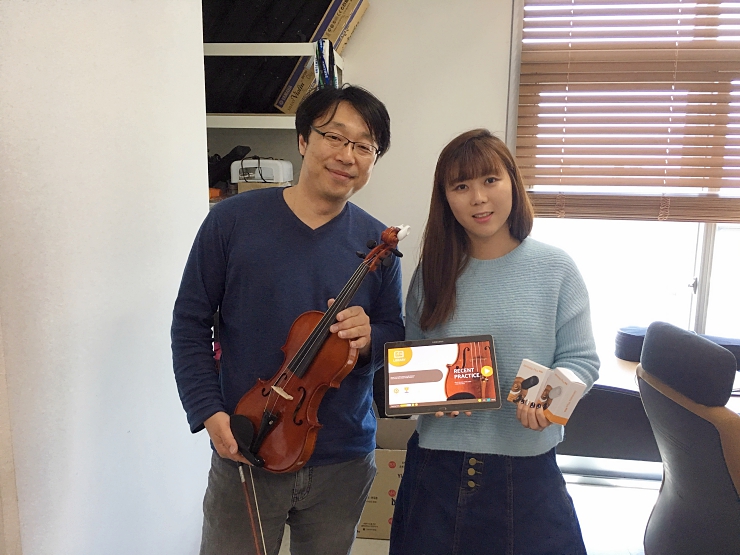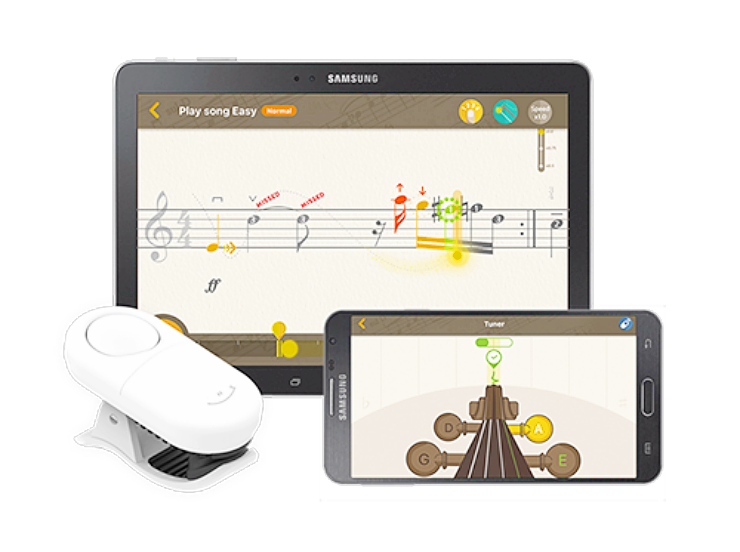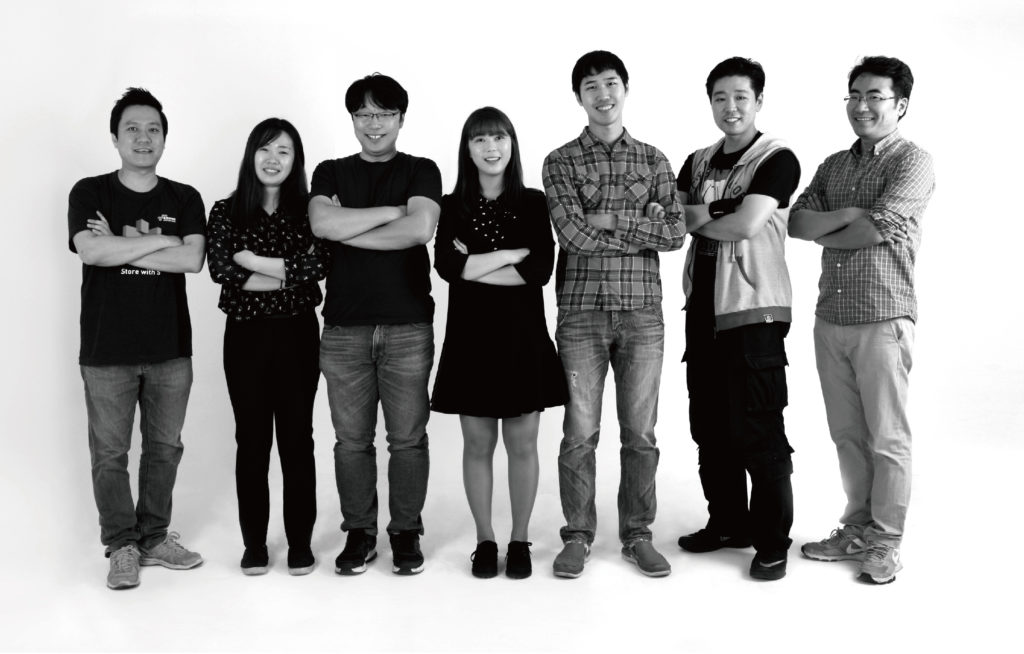Jameasy is a new smart device that lets violin players practice and tune their instruments in a totally new way. VentureSquare’s Kim Jaehee recently talked to Daeyeong Jeon, CEO of Jameasy, a spinoff venture from Samsung’s creative incubator named C-Lab.
Jameasy’s four cofounders all come from an engineering background, and the team originally came together with a vision of using their technology to solve problems that musicians often face. Jeon says that they started off with the violin, as it was the most difficult to build a device for. If they could successfully create something for the violin, then it meant the potential to use their technology for other instruments too.
At the time it was just an idea, but Jeon says he didn’t imagine that he would eventually be working as the CEO of a musical instrument focused startup. “When we first started as an internal venture at C-Lab, there was no spinoff company, and I hadn’t thought about turning it into a business.” He adds that people laughed at him when he initially mentioned the idea of creating a music project division while working at Samsung.

The idea for Jameasy took shape while at C-Lab, and after separating into a spinoff, the team entered Daegu’s Center for Creative Economy & Innovation (CCEI) for nine months where it received support and investment. The team chose the violin which Jeon says many people, even adults, struggle to get a proper sound out of when first playing. “Violin is a difficult instrument to play. It’s almost always included in after-school classes, but many give up because of how hard it is.”
Many people around Jeon asked why he wasn’t targeting the guitar market, which is much larger, saying that it would have better growth. However, a Finland company named Yousician is already dominating this area and is showing no sign of slowing down. This steered the company away from guitars for now, the company set on gaining traction in the more niche market of violins before expanding to other instruments.
Developing the Jameasy
Originally, the venture had started out with the goal of designing a new type of digital violin but potential consumers asked why they had to buy another violin when they already had one. The team changed its direction and quickly came up with an accessory that attaches to the end of any violin, rather than trying to sell people another instrument.
Prior to founding the company, Jeon and his team attended SXSW where they showcased Jameasy (named Jamit at the time) and gained a lot of attention, thanks to live demonstrations which caught the eye of many. The product was also featured at CES earlier this year where it was picked as a favorite among several media outlets.

The devices were also trialed at an elementary school in Jeolla Province over a period of three months, with students showing a good response. While preparing for an upcoming performance, students found practice more enjoyable by being able to play the violin like a game.
It was after this positive response that Jeon felt he couldn’t miss the chance to turn Jameasy into a company, deciding to take the plunge and leave Samsung C-Lab. The new company worked hard over the first year to produce a proper product.
“Whenever we talked to people everyone wanted to touch it and try it. Creating something that people could see and touch was most urgent,” explains Jeon. And although Jameasy’s accessory had been featured in the media, the device by itself wasn’t enough — a slick app needed to make the most of the device. “Getting people to buy software by itself in the Korean market is difficult, but we saw sales potential if it was combined with hardware.”
Making practice enjoyable and easy
Jameasy is different to other tuners in that it doesn’t have a display on the device, and instead uses the app to display information. Another unique feature is that it picks up sound not through wavelengths but via vibrations. Competitors’ devices that use microphones have the issue of picking up background noise, making it extremely difficult to use in noisy locations.

The app is perfect for first time players, and even someone picking up the instrument for the first time can be guided through how to play basic notes, and see their progress in real time. The app can tell you when a note needs to be a little higher or lower, as well as the bowing (striking the bow back and forth) technique for notes. There are around 500 pieces of music to choose from, though most of it is classical due to copyright restrictions.
If you’ve ever played Guitar Hero, then the app will feel somewhat familiar. The company has worked hard to gamify the experience, with a vibrant and easy to follow notation style, making it perfect for kids or anyone unfamiliar with reading music. Of course, gamification wouldn’t be complete without stats, the app providing comprehensive information on your practice progress and time.

Creating more effective practice sessions is the main focus behind the Jameasy, and like many startups, the company is looking to improve its product further by adding AI. It hopes that machine learning will allow the app to provide budding musicians with better feedback about their playing, and a prototype is due out next month.
Jameasy’s product is ready, but Jeon says the company is still considering how it will market the product, and whether it will use crowdfunding to raise capital.
“There is no guarantee that you’re going to succeed with crowdfunding, and failing a campaign can actually trip you up quite bad,” he explains.
While most startups these days wouldn’t think twice about using crowdfunding, because the violin market is small compared to other instruments, the company has mainly been appealing to musical institutions and school communities. Jeon says that he plans to look more closely at crowdfunding after releasing products for both guitars and violins.
Find out more about Jameasy via the company’s website. View the original article in Korean here.






